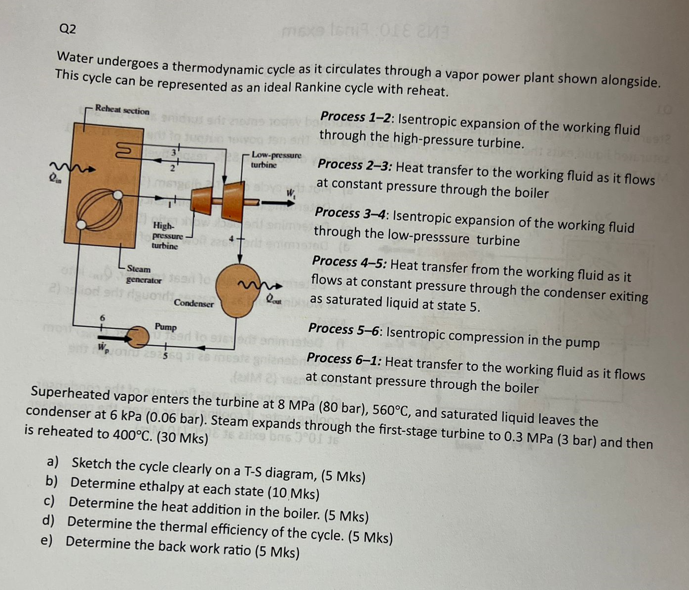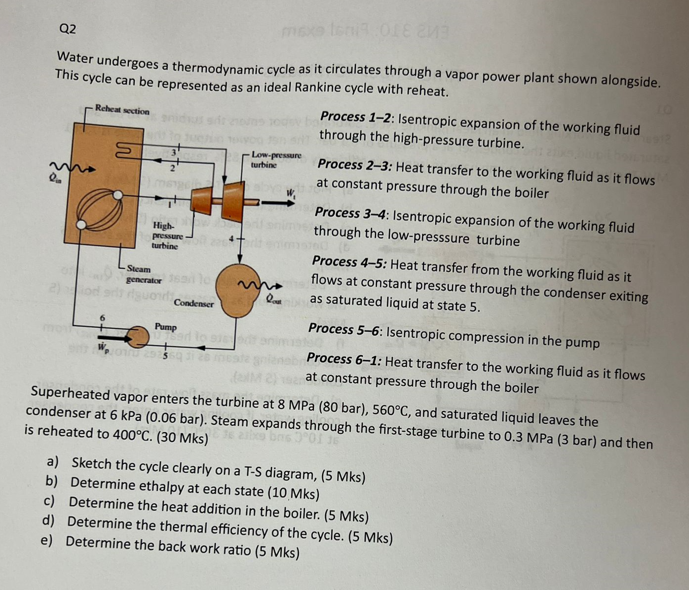Answered step by step
Verified Expert Solution
Question
1 Approved Answer
Q2 Water undergoes a thermodynamic cycle as it circulates through a vapor power plant shown alongside. This cycle can be represented as an ideal


Q2 Water undergoes a thermodynamic cycle as it circulates through a vapor power plant shown alongside. This cycle can be represented as an ideal Rankine cycle with reheat. Process 12: Isentropic expansion of the working fluid through the high-pressure turbine. process 23: Heat transfer to the working fluid as it flows at constant pressure through the boiler process 34: Isentropic expansion of the working fluid through the low-presssure turbine process 45: Heat transfer from the working fluid as it flows at constant pressure through the condenser exiting as saturated liquid at state S. Process 56: Isentropic compression in the pump Process 61: Heat transfer to the working fluid as it flows at constant pressure through the boiler Superheated vapor enters the turbine at 8 MPa (80 bar), 5600C, and saturated liquid leaves the condenser at 6 kPa (0.06 bar). Steam expands through the first-stage turbine to 0.3 MPa (3 bar) and then is reheated to 4000C. (30 Mks) a) b) c) d) e) Sketch the cycle clearly on a T-S diagram, (5 Mks) Determine ethalpy at each state (10 Mks) Determine the heat addition in the boiler. (5 Mks) Determine the thermal efficiency Of the cycle. (5 Mks) Determine the back work ratio (5 Mks)
Step by Step Solution
There are 3 Steps involved in it
Step: 1

Get Instant Access to Expert-Tailored Solutions
See step-by-step solutions with expert insights and AI powered tools for academic success
Step: 2

Step: 3

Ace Your Homework with AI
Get the answers you need in no time with our AI-driven, step-by-step assistance
Get Started


